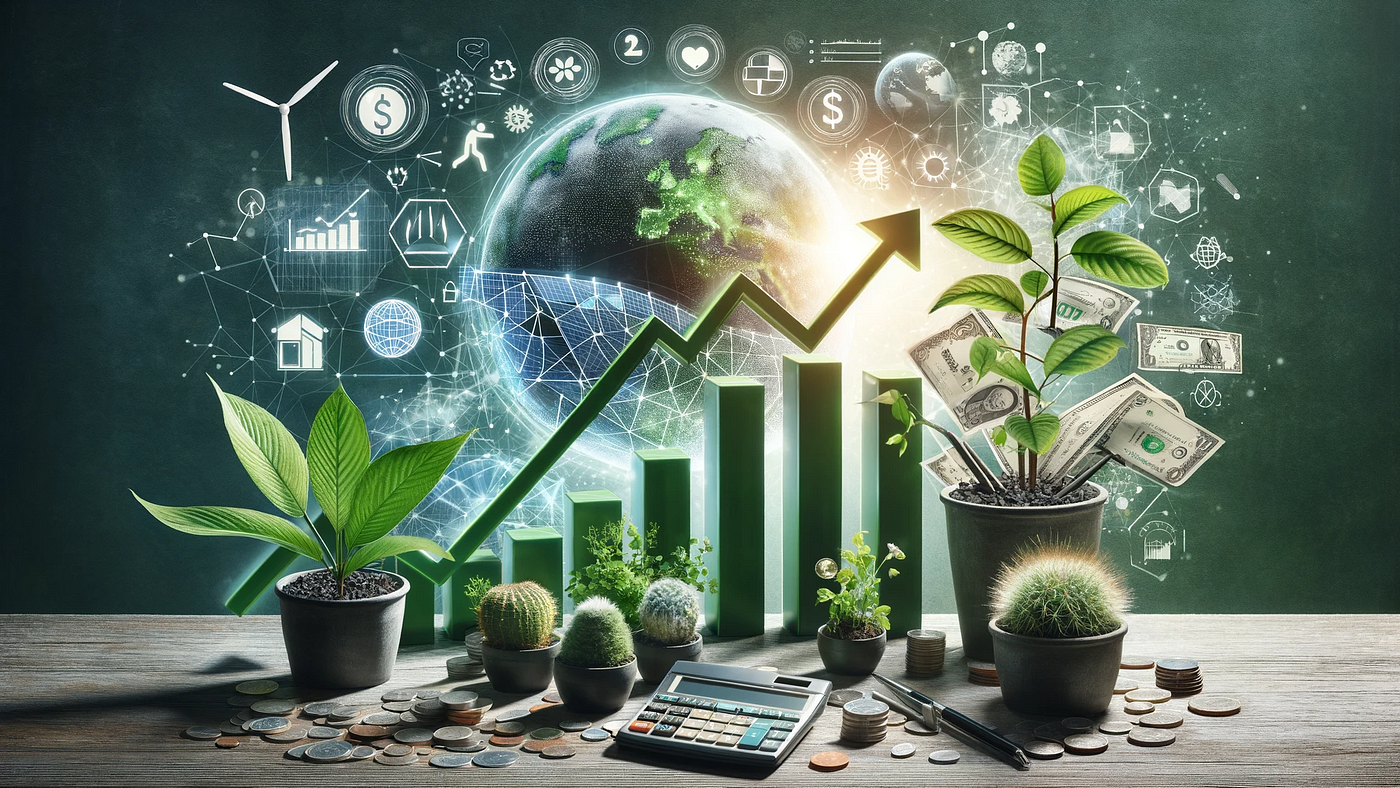In the modern world, technology has become a driving force behind economic development. It has transformed industries, created new markets, and revolutionized the way businesses and governments operate. From automation and artificial intelligence (AI) to the internet and blockchain, technological advancements are reshaping the global economy. In this article, we explore the role of technology in economic development, its impact on different sectors, and how it is shaping the future of economies around the world.
1. Technological Innovation and Economic Growth
At the heart of economic development is innovation. New technologies, particularly in industries such as information technology, manufacturing, and healthcare, are contributing to growth in developing and developed economies alike. Technology leads to increased productivity, greater efficiency, and the creation of new goods and services. For example, the internet and mobile technology have led to the rise of e-commerce, enabling businesses to expand their reach to global markets.
In the past, technological progress was often linked to industrial revolutions. The first industrial revolution in the late 18th century was driven by innovations like the steam engine, while the digital revolution of the late 20th century was powered by the rise of computers and the internet. Today, technologies such as AI, blockchain, and automation continue to drive growth in a wide array of sectors, from financial services to agriculture.
2. Technology and Employment
The relationship between technology and employment is complex. On one hand, automation and AI are replacing traditional jobs, particularly in manufacturing and repetitive tasks. However, technology is also creating new job opportunities in fields such as software development, cybersecurity, data science, and digital marketing. Moreover, the rise of the gig economy, fueled by platforms like Uber and Airbnb, has created new avenues for people to earn a living.
In developing countries, technology can serve as a tool for poverty alleviation and job creation. The proliferation of mobile phones has enabled access to financial services, education, and healthcare in remote areas, improving livelihoods. For instance, mobile banking services like M-Pesa in Kenya have revolutionized financial inclusion by allowing people without traditional bank accounts to make transactions and access credit.
3. Technology in Agriculture
Agriculture is a vital sector for many developing economies. Technology plays a significant role in improving agricultural productivity and food security. Innovations like precision farming, which uses sensors, drones, and GPS technology, enable farmers to optimize their use of resources such as water, fertilizers, and pesticides. This leads to higher crop yields and more sustainable farming practices.
In addition, the rise of digital platforms and mobile apps has helped farmers access information about market prices, weather forecasts, and best farming practices. Technology has allowed small-scale farmers to become more competitive, improving both their economic outcomes and their contribution to national economies.
4. Technology and Education
Education is another critical sector where technology is making an impact. The digital divide has hindered access to quality education in many parts of the world. However, technological advancements, particularly in e-learning and online platforms, are bridging this gap. Online courses, webinars, and digital classrooms are now accessible to students in rural areas or regions where traditional educational infrastructure is lacking.
Moreover, technology helps to improve the quality of education by providing interactive learning tools, personalized learning experiences, and access to resources that were previously out of reach. This has allowed individuals in both developed and developing nations to enhance their skills, increase their employability, and contribute to their countries’ economies.
5. Technology and Infrastructure Development
In the context of infrastructure development, technology plays a central role in enhancing the efficiency and effectiveness of infrastructure projects. From smart cities to energy-efficient transportation systems, technological solutions are helping countries build more sustainable and resilient infrastructure.
For instance, in urban development, IoT (Internet of Things) technologies are being used to monitor and manage everything from traffic and waste to energy consumption. In energy infrastructure, renewable energy technologies such as solar and wind power are helping reduce dependence on fossil fuels, contributing to more sustainable economic growth.
In the developing world, technology is also improving access to basic infrastructure such as clean water, sanitation, and electricity. Innovative solutions like off-grid solar power systems and water filtration technologies are helping address infrastructure gaps in areas that traditionally lacked access to such services.
6. The Role of Technology in Global Trade
Global trade has been greatly enhanced by advancements in technology, particularly in communication, logistics, and data analytics. The rise of e-commerce platforms, like Amazon and Alibaba, has transformed how businesses trade goods and services internationally. Through digital platforms, companies can now reach customers from virtually anywhere in the world, regardless of geographic boundaries.
Moreover, technologies such as blockchain are improving the transparency and efficiency of trade transactions by providing secure, decentralized platforms for verifying and tracking goods as they move across borders. Digital trade also enables businesses to streamline supply chains, reduce costs, and ensure faster delivery times, benefiting both consumers and producers.
7. Challenges and Opportunities in the Digital Economy
While technology offers numerous opportunities for economic development, it also presents challenges. The digital divide—disparities in access to technology—remains a significant issue, particularly in rural areas and developing countries. Governments and private sector players need to work together to ensure that the benefits of technological advancements are accessible to all segments of society.
Additionally, issues such as data privacy, cybersecurity, and the ethical implications of AI need to be addressed to ensure that technology is used responsibly and in ways that benefit society as a whole.
Frequently Asked Questions (FAQs)
- How does technology drive economic growth? Technology drives economic growth by increasing productivity, creating new industries and markets, improving efficiency, and enhancing the global trade process.
- Can technology create new jobs? Yes, while technology may displace some jobs, it also creates new opportunities in fields such as software development, cybersecurity, and digital marketing.
- How is technology helping in agriculture? Technology improves agricultural productivity by enabling precision farming, optimizing resource use, and providing farmers with access to crucial market and weather information.
- What is the digital divide? The digital divide refers to the gap between those who have access to technology and the internet and those who do not, which can limit opportunities for economic development.
- How can technology improve education? Technology improves education by providing access to online learning, interactive tools, and resources that help students learn more effectively, especially in underserved regions.
- What role does technology play in infrastructure development? Technology helps improve the efficiency and sustainability of infrastructure through smart systems, renewable energy technologies, and improved project management techniques.
- What are the challenges of the digital economy? The challenges include the digital divide, data privacy concerns, cybersecurity risks, and the need for ethical standards in emerging technologies like AI.
Conclusion
Technology plays a pivotal role in driving economic development globally. It fuels innovation, enhances productivity, creates new industries, and facilitates global trade. While challenges such as the digital divide and ethical concerns need to be addressed, the benefits of technology in economic development are clear. With the right policies and investments, technology has the potential to create a more inclusive and sustainable global economy.
Key Takeaways
- Technology drives economic growth by enhancing productivity, creating new industries, and improving efficiency.
- Innovations in agriculture, education, and infrastructure are helping developing countries leapfrog traditional barriers to development.
- The digital economy presents both opportunities and challenges, particularly in terms of access to technology, data privacy, and ethical considerations.
- To fully harness the potential of technology, global collaboration and inclusive policies are essential to ensure that the benefits are shared across all segments of society.




